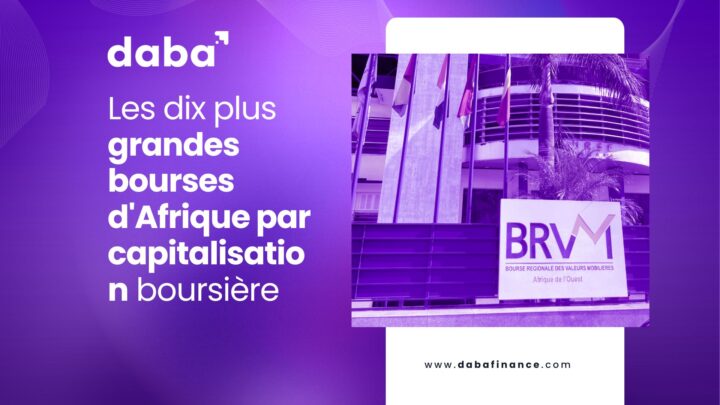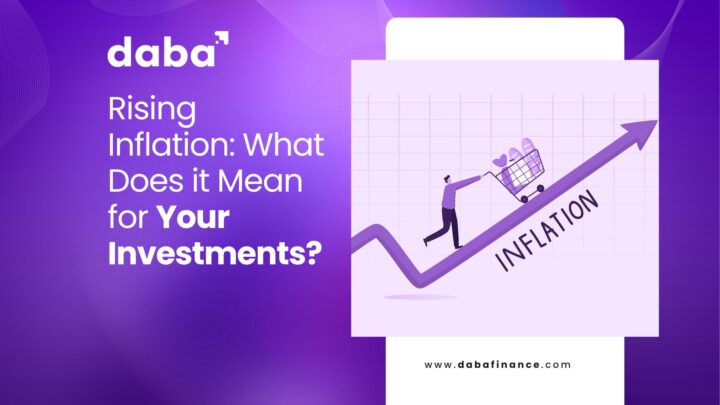Les indices sont des concepts parmi les plus courants et les plus importants dans le monde de la finance et de l’investissement. Mais que signifient-ils exactement ?
Un indice est un moyen de mesurer et de suivre la performance d’un groupe d’actions ou d’autres actifs. C’est comme un thermomètre pour le marché, montrant comment certaines parties du marché se comportent. En examinant un indice, les investisseurs peuvent voir si leurs investissements croissent, stagnent ou diminuent.
Sur la BRVM (Bourse Régionale des Valeurs Mobilières), qui est la bourse régionale des huit pays d’Afrique de l’Ouest partageant le franc CFA comme monnaie, plusieurs indices suivent différents secteurs et aspects du marché.
Exemples d’Indices sur la BRVM
- BRVM 30 : Cet indice suit les 30 actions les plus échangées sur la BRVM. C’est un bon indicateur de la performance globale du marché.
- BRVM Composite : Cet indice inclut toutes les actions cotées sur la BRVM, offrant une vue d’ensemble de la performance du marché.
- BRVM Prestige : Cet indice suit la performance des entreprises les plus prestigieuses cotées sur la BRVM.
- BRVM Principal : Cet indice suit les actions les plus importantes du marché principal, offrant des aperçus sur les principales entreprises.
- BRVM Agriculture : Cet indice suit les entreprises impliquées dans l’agriculture. Il est utile pour les investisseurs intéressés par le secteur agricole.
- BRVM Distribution : Cet indice se concentre sur les entreprises du secteur de la distribution, telles que le commerce de détail et de gros.
- BRVM Finance : Cet indice suit la performance des institutions financières comme les banques et les compagnies d’assurance.
- BRVM Industries : Cet indice couvre les entreprises industrielles, donnant une vue des secteurs de la fabrication et de la production.
- BRVM Autres Secteurs : Cet indice inclut des entreprises qui ne correspondent pas aux autres indices sectoriels spécifiques.
- BRVM Services Publics : Cet indice suit les entreprises qui fournissent des services publics, comme les services publics et les transports.
- BRVM Transport : Cet indice se concentre sur les entreprises impliquées dans le transport, y compris la navigation et la logistique.
Daba offre un accès à diverses options d’investissement, y compris des actions et des fonds, reflétant les segments du marché suivis par des indices comme le BRVM Composite. Téléchargez notre application pour démarrer votre parcours d’investissement.
Types d’Indices de Marché
Les indices de marché utilisent diverses méthodes pour calculer leurs valeurs, souvent basées sur des moyennes pondérées. Cela signifie que la valeur de l’indice est dérivée d’une moyenne pondérée de toutes les actions individuelles qu’il contient.
Méthodes de Calcul
- Indices Pondérés par le Prix : Dans ces indices, les actions avec des prix plus élevés ont un impact plus important sur la valeur de l’indice. Les changements dans les actions à prix élevé affectent significativement l’indice.
- Indices Pondérés par la Capitalisation Boursière : Ici, les actions avec de plus grandes capitalisations boursières ont plus d’influence. Les changements dans les plus grandes entreprises impactent significativement la valeur de l’indice.
Indices Spécialisés
D’autres indices se concentrent sur des secteurs ou des régions spécifiques, offrant une perspective de marché plus ciblée. Par exemple :
- Indices Sectoriels : Ils suivent des secteurs particuliers comme la technologie, la santé ou la finance.
- Indices Géographiques : Ils suivent des actions de régions spécifiques, comme les marchés émergents ou les actions européennes. Un exemple est le FTSE 100, qui suit les 100 plus grandes entreprises de la Bourse de Londres.
Caractéristiques d’un Indice
- Outil de Mesure : Un indice mesure la performance des prix d’un groupe d’actions ou de titres.
- Point de Référence : Il sert de référence pour comparer la performance des fonds communs de placement, des gestionnaires de portefeuille et d’autres investissements.
- Option d’Investissement : Les investisseurs peuvent acheter des fonds indiciels ou des ETF qui suivent un indice, leur permettant d’investir dans un marché large ou un secteur spécifique avec un seul investissement.
- Représentation du Marché : Les indices peuvent représenter l’ensemble du marché (large) ou des secteurs spécifiques (sectoriels).
Pourquoi les Indices Sont-Ils Importants ?
Les indices sont essentiels pour plusieurs raisons :
- Suivi des Données Financières : Ils aident à suivre les données financières comme les rendements boursiers, les taux d’intérêt et l’inflation.
- Investissement Passif : Les indices permettent l’investissement passif à travers des fonds indiciels et des ETF, qui sont des moyens peu coûteux d’investir dans le marché.
- Indicateurs Économiques : Des indices comme le CPI (Consumer Price Index) et le PMI (Purchasing Managers’ Index) sont utilisés pour mesurer l’activité économique et l’inflation.
- Portefeuilles Diversifiés : Les investisseurs peuvent construire des portefeuilles incluant un mélange de différents indices pour obtenir une exposition large au marché.
- Comparaison de Référence : Les investisseurs comparent la performance de leurs portefeuilles aux indices pour évaluer leur succès. Par exemple, un fonds commun de placement pourrait être comparé au S&P 500 pour voir comment il se comporte par rapport au marché.
- Allocation de Segment : Certains investisseurs allouent des fonds en fonction des rendements attendus de segments spécifiques du marché, utilisant des indices pertinents pour guider leurs décisions.
Avec la plateforme transparente et conviviale de Daba, les investisseurs peuvent facilement suivre la performance de leurs investissements, comme le suivi des mouvements d’un indice pour une prise de décision éclairée. Téléchargez notre application pour commencer.
Les Bases de l’Investissement Indiciel
L’investissement indiciel consiste à investir dans un portefeuille conçu pour correspondre ou suivre les composants d’un indice de marché. Voici comment cela fonctionne :
- Investissement à Faible Coût : Les fonds indiciels et les ETF ont généralement des frais plus bas que les fonds gérés activement.
- Diversification : Investir dans un indice offre une exposition large au marché, réduisant le risque associé aux actions individuelles.
- Rendements Constants : Les fonds indiciels visent à répliquer la performance d’un indice, offrant des rendements stables dans le temps.
- Facilité d’Investissement : C’est plus facile pour les investisseurs qui n’ont pas le temps ou l’expertise pour sélectionner des actions individuelles.
Avantages de l’Investissement Indiciel
- Frais Réduits : Les fonds indiciels ont des frais de gestion inférieurs par rapport aux fonds gérés activement.
- Risque Réduit : En investissant dans une large gamme d’actions, les fonds indiciels répartissent le risque.
- Performance Constante : De nombreux fonds gérés activement sous-performent par rapport à leurs indices de référence sur le long terme. Les fonds indiciels offrent souvent de meilleurs rendements avec moins de risques.
- Simplicité : L’investissement indiciel est simple et ne nécessite pas de négociation fréquente ou d’analyse approfondie des actions individuelles.
Pourquoi l’Investissement Indiciel Peut Vous Convenir
- Gain de Temps : L’investissement indiciel est une excellente option si vous n’avez pas le temps ou l’expertise pour choisir des actions individuelles.
- Rentable : Avec des frais inférieurs à ceux des fonds gérés activement, les fonds indiciels gardent plus de votre argent en activité pour vous.
- Performance du Marché : Les fonds indiciels surperforment souvent de nombreux fonds gérés activement sur le long terme.
- Exposition Diversifiée : Investir dans un indice vous expose à une large gamme d’actions, réduisant l’impact de la mauvaise performance d’une seule action.
Les indices sont essentiels pour suivre la performance du marché, investir de manière passive et comparer les rendements.
La BRVM offre divers indices qui fournissent des aperçus sur différents secteurs et le marché global, aidant les investisseurs à prendre des décisions éclairées. Que vous regardiez le BRVM 30 pour un aperçu des principales actions ou des indices sectoriels spécifiques comme le BRVM Agriculture, il existe une richesse d’informations pour guider vos investissements. L’investissement indiciel peut être une stratégie intelligente pour ceux qui recherchent une exposition large au marché avec moins de risques et de coûts.
Les investisseurs peuvent tirer parti de la plateforme de Daba pour explorer les marchés émergents comme ceux représentés sur la BRVM, diversifiant ainsi leurs portefeuilles pour une croissance à long terme. Téléchargez notre application maintenant ou cliquez ici pour en savoir plus.










